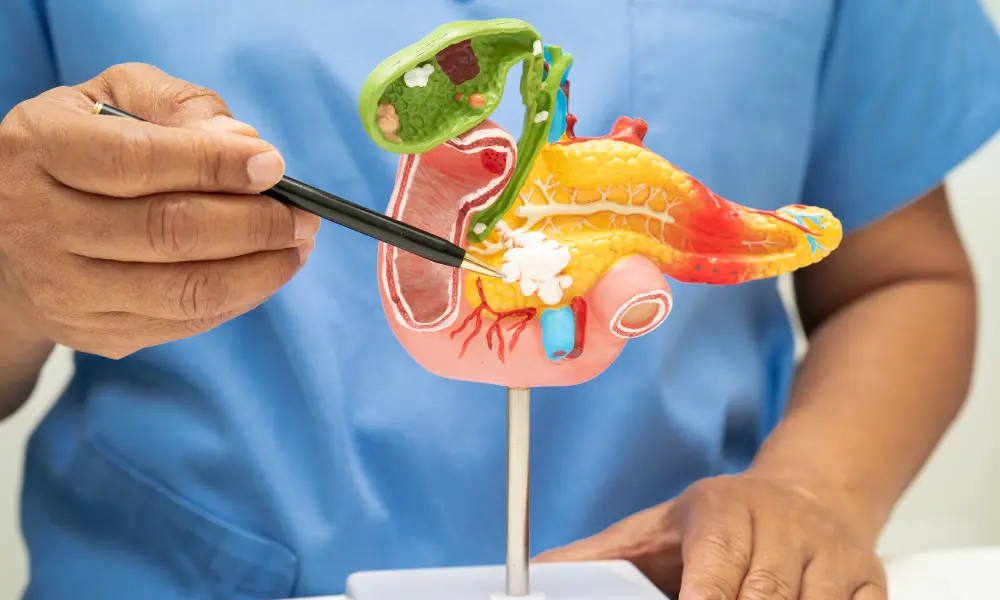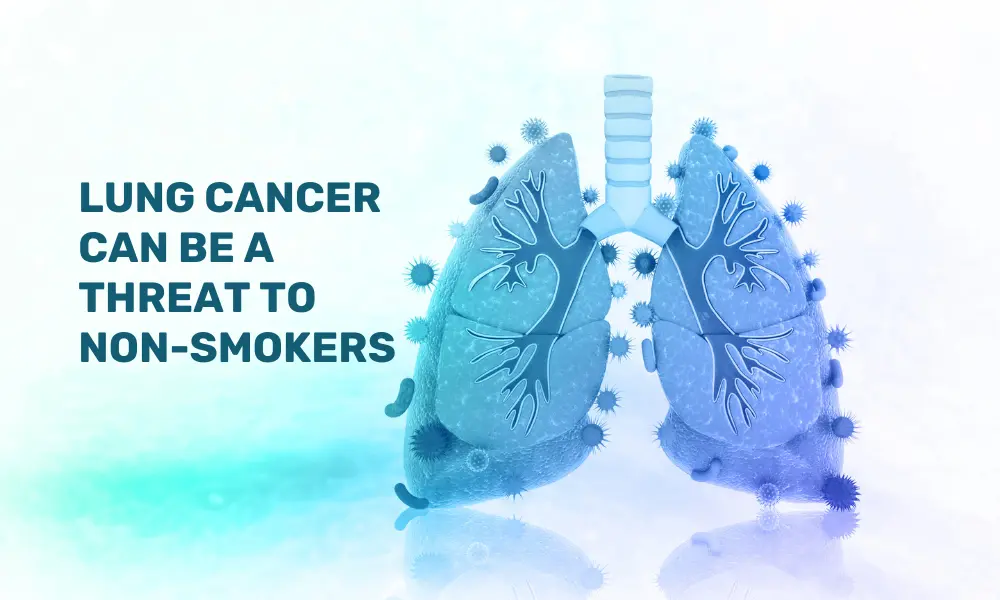Long-standing diabetes is a high-risk factor for pancreatic cancer. Diabetes contributes to both the onset and advancement of Pancreatic cancer. Pancreatic cancer is a cancer type that begins in the pancreas. The pancreas is an important part of the body that is located in the abdomen.
The pancreas performs two main functions, which include digestion and blood sugar regulation. It acts as a digestive organ, producing enzymes that break down food, and an endocrine gland, releasing hormones like insulin and glucagon that regulate blood sugar levels.
The pancreas plays a crucial role as it is responsible for producing enzymes that significantly help break down food and regulate hormones in the body. When the cancer starts to develop in the pancreas, it starts to disrupt its function while increasing the risk of various health complications. It is aggressive compared to other types of cancer.
Recognizing and detecting pancreatic cancer at its early stage becomes challenging as it often does not show any clear symptoms. This can further lead to late diagnosis while negatively affecting one’s quality of life. Over time, it can spread to other parts of the body, which can lead to severe complications. This is why it becomes crucial to understand and recognize this cancer early. People who are at higher risk of developing pancreatic cancer should pay close attention to their health by regularly going for routine screenings and checkups.
Risk factors of Pancreatic Cancer
Here are five risk factors that help identify pancreatic cancer:
1. Diabetes: There is a significant link between conditions like diabetes and pancreatic cancer. Having type 2 diabetes can increase the chances of an individual developing pancreatic cancer, making it important to take proactive steps to prevent it.
2. Age: There is a significant link between age and pancreatic cancer. The chance of developing pancreatic cancer increases with age, especially after the age of 55. This is mostly because your body loses its ability to repair damaged cells.
3. Obesity: People who are obese or overweight are at higher risk of developing several types of health complications, including pancreatic cancer. The excess fat accumulation around your abdomen can cause multiple health issues, such as chronic inflammation and insulin resistance. Over time, these factors can contribute to the growth of tumors in the pancreas.
4. Poor diet: Your diet plays a significant role in developing cancer. If you are someone who frequently eats foods that contain refined sugar, sodium, preservatives, and unhealthy fats, then you are more likely to develop this cancer. To prevent this, try having healthy and well-balanced meals that are jam-packed with essential nutrients like antioxidants to reduce oxidative stress and inflammation present in the body.
5. Smoking: If you are someone who smokes actively, then you should immediately leave this habit of yours. Smoking is one of your biggest enemies. Over time, smoking starts to affect your body negatively while contributing to a range of health problems, along with pancreatic cancer. The harmful chemicals in cigarettes can cause genetic mutation and inflammation in the pancreas.
Pancreatic cancer spreads to other parts of the body, which can lead to severe complications. This is why it becomes crucial to understand and recognize this cancer early.
FAQ on Pancreatic Cancer and Diabetes
Are pancreatic cancer and diabetes linked?
Diabetes may be a risk factor or a symptom of pancreatic cancer. People with long-standing type 2 diabetes have an increased risk of developing pancreatic cancer.
What is the major cause of pancreatic cancer?
Smoking, chronic pancreatitis, diabetes, or inflammation of the pancreas, family history of pancreatic cancer, and genetic syndromes are risk factors for pancreatic cancer.
How do you detect pancreatic cancer early?
There are blood tests that can detect pancreatic exocrine tumors, the most common pancreatic tumor. The blood tests may detect DNA released from cancer cells, the immune system’s response to the tumor or other blood-based biomarkers.
How do you avoid pancreatic cancer?
One must avoid alcohol or limit oneself to one drink per day for women or two drinks for men. Limit workplace exposure to chemicals and follow all occupational safety protocols. One must consume a diet rich in fruits and vegetables, and avoid sugary drinks and red and processed meat.
Disclaimer: This article is meant for informational purposes only and must not be considered a substitute for professional advice.





